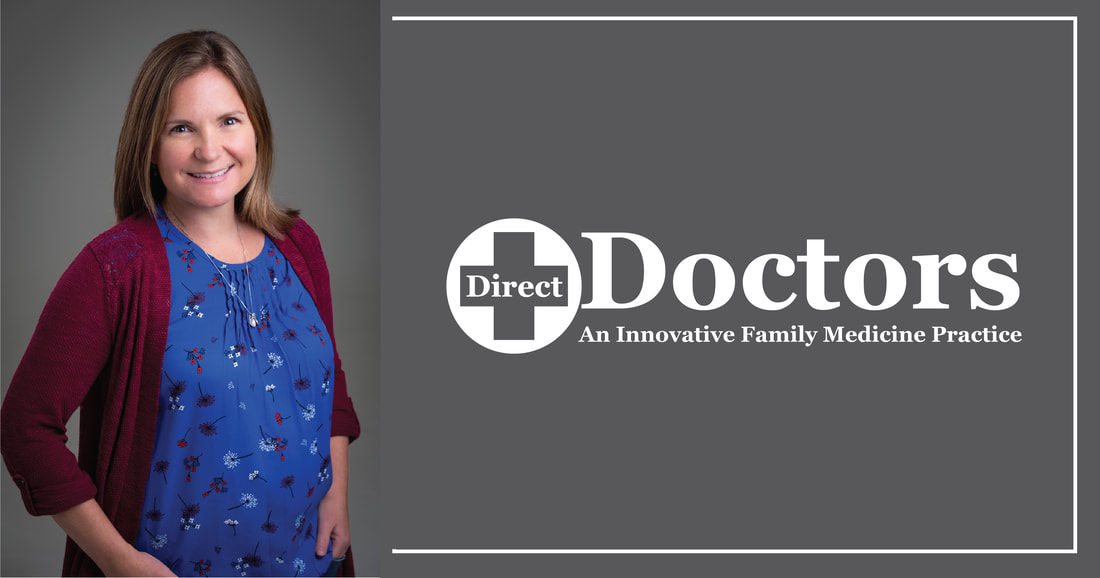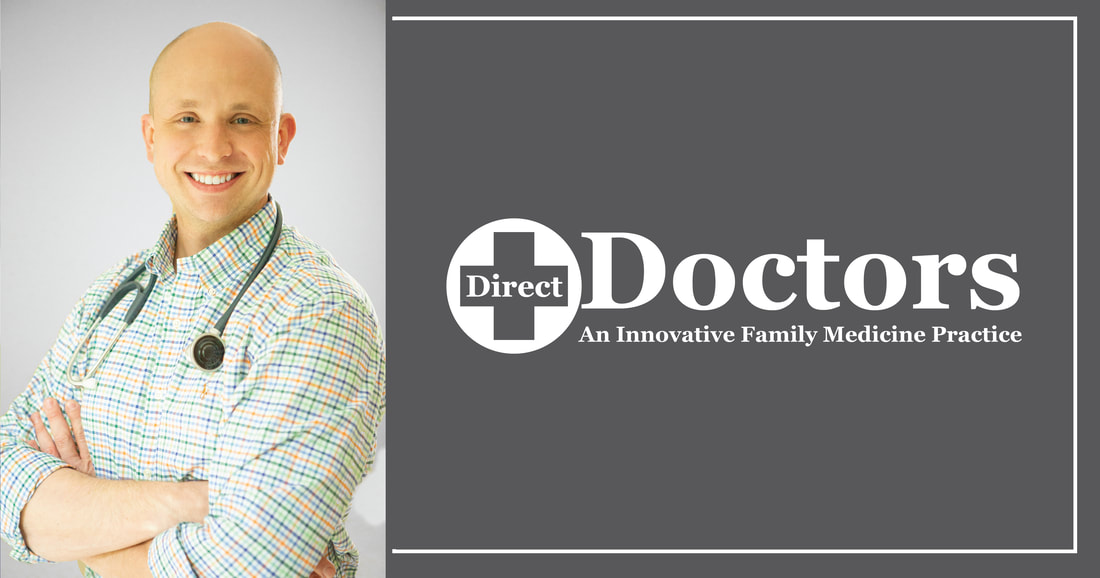|
A recent article featured on the medical blog, www.Kevinmd.com, highlights some super important reasons as to why you might consider seeing a doctor who is not affiliated with a hospital or large system. As a small, direct primary care practice here at Direct Doctors, we wholeheartedly agree!
It is easy to think that substance use can't affect us - until it does. Substance use disorder does not discriminate and should not be shamed or shunned. It is a disease just as much as diabetes or asthma. That is why Dr. Delaporta offers substance use disorder treatment as part of her primary care practice.
Like other chronic illnesses, there are medications available to help with substance use disorder. Opioid use disorder is the over use of or addiction to things like vicodin, percocet, oxycodone, heroin, or fentanyl. Buprenorphine-naloxone (brand name suboxone) has been well established as a very helpful part of promoting recovery for people with opioid use disorder. There are also medications that can help people with alcohol use disorder. Medications like oral or injectable naltrexone (brand name vivitrol), acamprosate (campral), and disulfiram (antabuse) have been proven helpful in recovery from alcohol overuse. Just when we thought Amazon had already conquered all the industry spaces, they have recently come out with a new health offering. According to their site’s tagline, they can “quickly treat common conditions with 24/7 video visits and messaging with a clinician. Upfront pricing. No appointments, and no insurance needed.” Sounds a lot like Direct Primary Care, doesn’t it? Or does it!?
Direct Doctors, a direct primary care practice in East Greenwich, Rhode Island, is pleased to announce that Dr. Sara Delaporta will join the practice starting Tuesday, May 30.
Wow… this was unexpected! Almost a year ago, Lifespan and Care New England, along with Brown University, announced a proposed merger. At that time, I wrote a blog about why this was such a horrible idea. While the physicians at Direct Doctors completely understood the downsides of such a merger, especially in this small state, we did not think Rhode Island would get this right! Well today, the Attorney General denied the merger while at the same time an FTC advisory board voted 4-0 to file a joint lawsuit to do the same. While news organizations are calling this “stunning,” this is likely only because we tend to get these decisions wrong all the time. There is not necessarily anything stunning about realizing that having one organization in charge of 80% of inpatient care in a state is a bad idea! It seems obvious to us, given the mountain of evidence that AG Neronha cites, that health care monopolies cause prices to go up, access to go down without any appreciable change in care.
Now, Rhode Island still has a long way to go to fix our broken health care system. We need to focus more on primary care including incentivizing more primary care physicians to practice here. We need to give innovative practices (like Direct Primary Care) more of an opportunity to thrive. We have to work on giving patients more choice while also lowering costs. We are doing that here at Direct Doctors and will continue to do so as we grow in the future. Dr. Ashley Lakin DO is "over the moon" to be starting her own branch of Direct Primary Care with the help of her friends at Direct Doctors. Dr. Lakin, trained at Brown with Drs. Turshen & Hedde. As a fellowship trained Maternal-Child Health Family Physician, Dr. Lakin is excited to add prenatal care and lactation medicine to Direct Doctors. With a special interest in primary care for newborns and whole families, Dr. Lakin is a great addition to the Direct Doctors' family. Drs. Hedde & Turshen "are so excited to have a colleague joining us as we expand the services and locations of Direct Doctors direct primary care practices in Rhode Island. Dr. Lakin is a long-time colleague & friend as well as a phenomenal and caring physician." Dr. Lakin is currently accepting new patients and will be working out of the East Greenwich office until her new practice location is up and ready in Riverside, RI where she plans to stay long-term.
This recent Wall Street Journal article may have hit the nail on the head. During the early months of the COVID-19 pandemic, insurance companies and state & federal regulators really reduced the requirements surrounding telehealth. This allowed patients who were sick or in need of prevention-related care from their primary care doctors or specialists to reach the doctor without going in for a visit. Care was able to continue for many things that did not have an essential in-person component and patients were happy to continue to receive what they needed in a trying time.
In 2019 we discussed the basics of why patients wait a long time to hear back, get through on the phone lines, or be seen with a primary care doctor. Unfortunately, this problem seems to have worsened acutely with the COVID epidemic. As an update to that blog, we want to begin by highlighting again that according to Merritt Hawkins, the average wait time for a new patient appointment with a primary care doctor is 29 days, up 50% from 2014. In Rhode Island, the wait continues to be much longer. We’ve heard of patients quoted a six to twelve month wait period before they can see a doctor as a new patient!
As the COVID-19 situation in RI takes a turn for the worse (yet again) we find ourselves in a predicament as patients. The hospitals in RI are over 90% capacity for inpatient beds and ICUs are at more than 80%. This has been true on and off for a majority of the COVID pandemic. In states like FL, which are extremely hard hit right now, some ICUs and hospitals are unable to accept any patients. A nationwide news story recently revealed patients have died because they cannot get non-COVID-related hospital care when they need it and their local hospital is full.
Why am I telling you all this? Not because I am trying to scare you out of going to the hospital when you need it or to make you think all is lost. I am telling you this to emphasize NOW is a more important time than there ever was to get yourself a trusted Primary Care Doctor (PCP). PCPs can address your needs before you become very sick, can order testing as an outpatient to avoid waiting in the ER or urgent care, and we can help you identify illnesses and treat them quickly. The Direct Primary Care movement has picked up steam over the last seven years since we started Direct Doctors in RI. According to DPC Frontier, a site owned by a DPC physician/lawyer who was a founder of the movement, there are now over 1500 clinics doing pure Direct Care across the nation. There are likely many more than have been officially labeled on the map. Looking back to 2014, when we began, there were less than 100.
|
AuthorLauren Hedde, DO; James Hedde, DO and Mark Turshen, MD are Family Physicians and Co- Founders of Direct Doctors, Inc. a Direct Primary Care Practice. Archives
December 2023
Categories |


 RSS Feed
RSS Feed